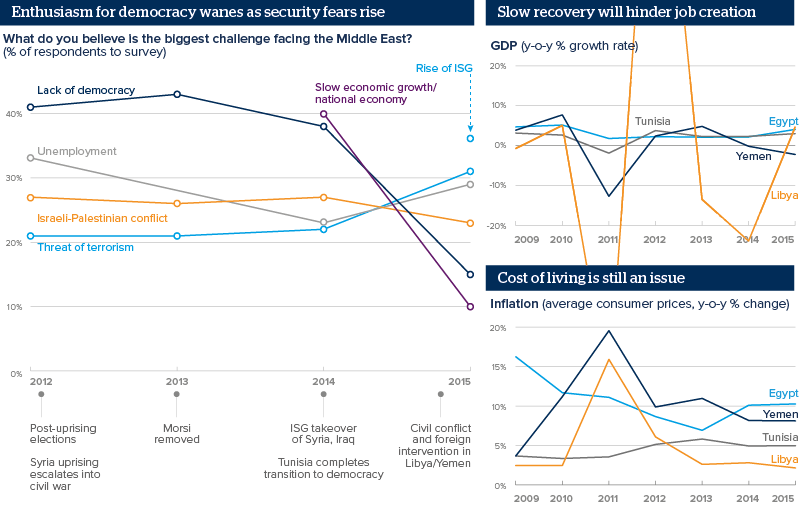Security fears will strengthen Arab authoritarianism
Young Arabs now see 'Islamic State', not reform, as the region's greatest challenge

Source: IMF, Annual ASDA’A Burson-Marsteller Arab Youth Survey, April 2015
Outlook
As the instability unleashed by the removal of authoritarian governments in the region has risen, terrorism and the Islamic State group (ISG) has replaced democratic reform as the top concern of Arab youth. This change in priorities will enable regimes to prioritise security and delay reform without losing popular support, reinforcing authoritarian trends and benefitting political stability in the short term.
However, the focus on counter-terrorism at the expense of political and economic reform is likely to damage regional stability in the longer run. Unemployment and living standards, and the Israeli-Palestinian conflict remain core concerns among Arab youth -- failure to tackle these issues will increase the risk of new political crises that could challenge domestic stability in the longer term.
Impacts
- Security crackdowns and lack of political freedom will increase radicalisation rates among disenfranchised groups.
- Gulf interventionism in regional conflicts will increase defence spending and polarisation of Arab youth along sectarian/ethnic lines.
- The Israel-Palestine conflict will regain prominence and maintain anti-Western, anti-Israel sentiment in the region.
- Vested establishment interests will block the growth of entrepreneurship and innovation needed to reduce youth unemployment.